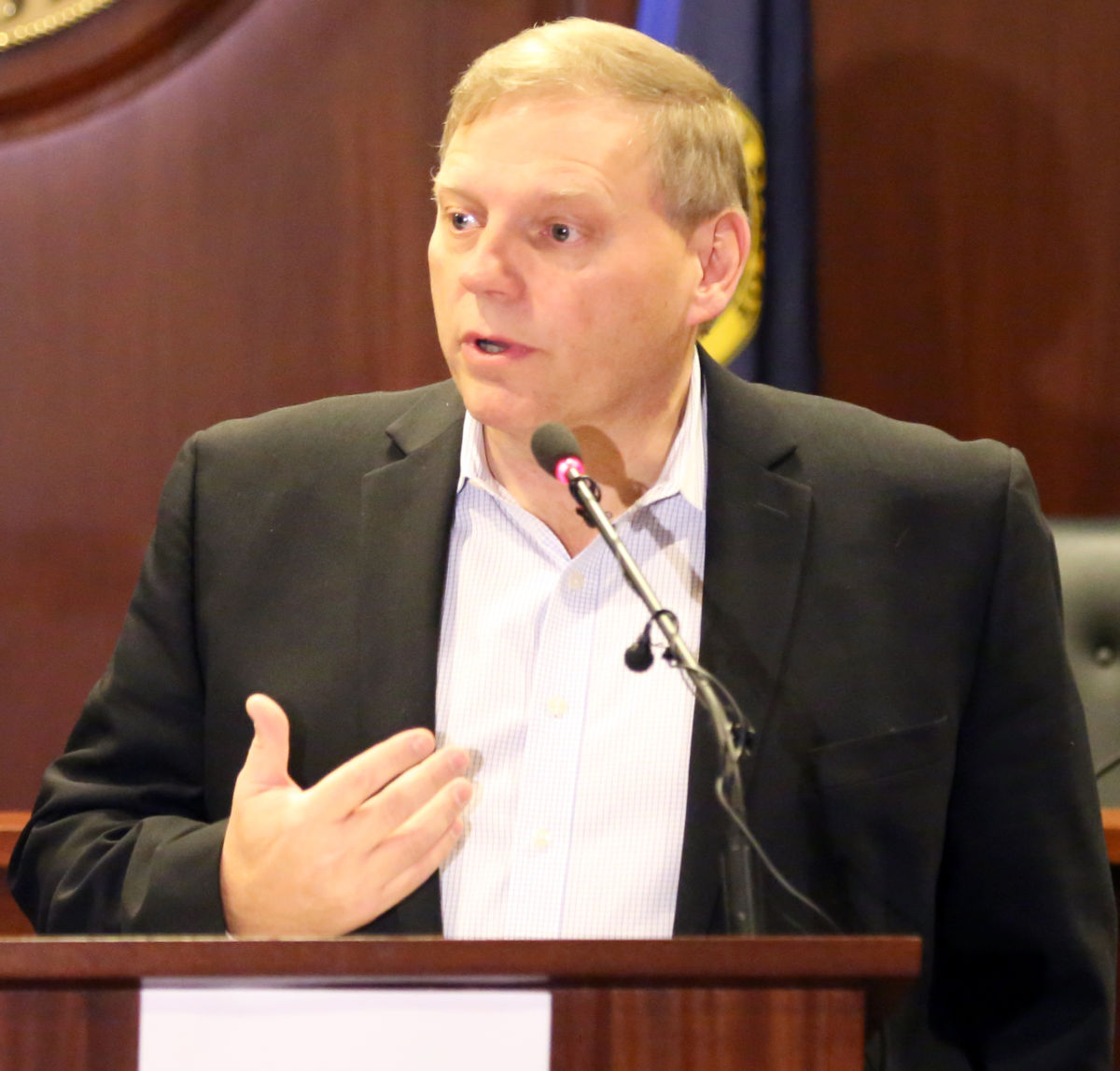Calling his K-12 task force a success, Gov. Butch Otter wants to employ a similar approach to higher education.
On Friday, Otter announced that he will create a 28-member higher education task force — in hopes of improving Idaho’s stagnant college completion rates.
The task force comes as Idaho continues to struggle to meet a goal dating back to 2010: getting 60 percent of the state’s 25- to 34-year-olds to hold a postsecondary degree by 2020. Otter has championed that cause for years — in concert with education, political and business leaders — to little avail. Only 46 percent of Idaho’s high school graduating class of 2015 enrolled in college within 12 months, down from 52 percent a year earlier.
On Friday, Otter conceded that Idaho hasn’t improved its college completion numbers, as hoped. But he seemed to try to massage the wording, saying the 60 percent number is “simply a benchmark.”
“But I think 60 percent is a reasonable benchmark,” Otter said Friday morning, at a legislative preview hosted by the Associated Press. “If we get to 60 percent, then we’ll know what we’re doing right.”
That’s where Otter hopes the higher education task force will step in. The group will include university presidents, business representatives, legislators and students. Otter didn’t announce his complete roster, but introduced the task force’s co-chairs: State Board of Education member Linda Clark, the former superintendent of the West Ada School District; and Bob Lokken, board chairman of Idaho Business for Education, a statewide group of business executives.
Clark and Lokken both sat on Otter’s K-12 task force, a diverse group that met in 2013 and reached near-unanimous agreement on a list of 20 recommendations.

Lokken, CEO of Boise’s WhiteCloud Analytics, has been something of a 60 percent skeptic. On repeated occasions, he has said Idaho will not hit this goal by 2020. And while he said 60 percent is “just a number,” Lokken also said the number reflects the new economy — and changes that will not wait on the state’s educational institutions.
“We need to stay ahead of this,” he said.
Clark says Idaho has a unique opportunity. With a State Board that focuses both on K-12 and higher education, Idaho can capitalize on dual credit courses and other initiatives to encourage high school graduates to stay in school.
“I believe that this task is about building a system,” she said.
Otter’s annual appearance at the AP legislative preview provided a bit of a sneak peek into the governor’s 11th State of the State address — Monday’s speech that will launch the 2017 legislative session. Not surprisingly, his appearance drew a standing-room-only crowd at a Senate committee room. Among the listeners were state superintendent Sherri Ybarra, House Speaker Scott Bedke, Senate President Pro Tem Brent Hill and Boise State University President Bob Kustra.
Otter discussed a wide variety of topics Friday. Among the highlights:
The career ladder. Otter again signaled his support for funding the third year of the career ladder, a five-year plan to boost teacher pay. The $250 million plan evolved from Otter’s K-12 task force recommendations in 2013.
But the third year of the career ladder carries the heaviest price tag to date.
“It may be a heavy lift this year to get the $58 million for the career ladder,” Otter said Friday, “(but) this was a promise I made.”
However, Otter again said accountability is a key part of the career ladder. As Idaho Education News has reported since June 2015, the state has received erroneous data from districts on teacher evaluations, which will be tied to future pay raises. An independent auditing firm conducted a spot check of 2014-15 evaluations for the State Department of Education, and found 99 percent of evaluations were inconsistent or incomplete.
Otter for agriculture secretary? The governor said he is still interested in a job in President-elect Donald Trump’s administration. But he said he is watching the morning TV news to find out where he stands.
Otter has been vetted for agriculture secretary, one lingering vacancy in Trump’s cabinet.
“There’s a lot of talent seeking that opportunity,” he said. “I would love that opportunity.”
Agriculture secretary was not Otter’s first choice, he said Friday; Otter put in an inquiry for the interior secretary’s post, and Trump has tapped Montana Republican Rep. Ryan Zinke for that position. And Otter downplayed the suggestion that he is distracted from his work as governor.
“This isn’t a daytime job,” he said.
